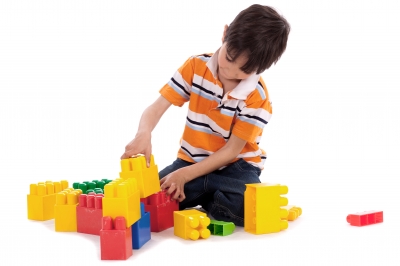 We all know the obvious benefits of having pets; a kitty at play keeps the rodents away and a man-eating Rottweiler is a major deterrent against burglars and other larger vermin. We also know that pets can provide psychological benefits for their owners. Persons who suffer from loneliness, serious illnesses or other significant life challenges are often encouraged to get a pet. Continue reading
We all know the obvious benefits of having pets; a kitty at play keeps the rodents away and a man-eating Rottweiler is a major deterrent against burglars and other larger vermin. We also know that pets can provide psychological benefits for their owners. Persons who suffer from loneliness, serious illnesses or other significant life challenges are often encouraged to get a pet. Continue reading
Monthly Archives: January 2012
Posttraumatic Stress Disorder: Psychodynamic Explanations
 The link between trauma and mental illness has been known for many decades. As early as 1896, Freud hypothesized that sexual trauma resulted in hysterical illness (Chu, 1991). He later adjusted his theory to suggest that intra-psychic conflict and not the external trauma causes many illness and several aspects of this later theory have been applied to the understanding of PTSD and its main presenting symptoms. Continue reading
The link between trauma and mental illness has been known for many decades. As early as 1896, Freud hypothesized that sexual trauma resulted in hysterical illness (Chu, 1991). He later adjusted his theory to suggest that intra-psychic conflict and not the external trauma causes many illness and several aspects of this later theory have been applied to the understanding of PTSD and its main presenting symptoms. Continue reading
What is Posttraumatic Stress Disorder (PTSD)?
 Posttraumatic stress disorder (PTSD) is an anxiety disorder which develops following exposure to a terrifying event involving death, injury, or a threat to the physical integrity of onself or of another person. The symptoms characteristic of PTSD can develop out of personal experience with traumatic events or from witnessing or hearing about such events being experienced by others. Distressing events leading to this disorder include wars, natural disasters, imprisonment, violent personal assaults, serious automobile accidents, and being diagnosed with a life-threatening illness. Continue reading
Posttraumatic stress disorder (PTSD) is an anxiety disorder which develops following exposure to a terrifying event involving death, injury, or a threat to the physical integrity of onself or of another person. The symptoms characteristic of PTSD can develop out of personal experience with traumatic events or from witnessing or hearing about such events being experienced by others. Distressing events leading to this disorder include wars, natural disasters, imprisonment, violent personal assaults, serious automobile accidents, and being diagnosed with a life-threatening illness. Continue reading
Giving is its Own Reward
 Or so the researchers at UCLA would have us believe. Assistant professor of psychology Naomi Eisenberger and psychology graduate Tristen Inagaki performed an experiment on 20 heterosexual couples in romantic relationships at UCLA’s Ahmanson-Lovelace Brain Mapping Center.
Or so the researchers at UCLA would have us believe. Assistant professor of psychology Naomi Eisenberger and psychology graduate Tristen Inagaki performed an experiment on 20 heterosexual couples in romantic relationships at UCLA’s Ahmanson-Lovelace Brain Mapping Center.
In the experiment, each boyfriend received painful electric shocks while his girlfriend’s brain activity was monitored using functional magnetic resonance imaging (fMRI). Inagaki and Eisenberger “explored the potentially beneficial effects of support giving by examining the neural substrates of giving support to a loved one.” They “focused on a priori regions of interest in the ventral striatum and septal area (SA) because of their role in maternal caregiving behavior in animals” (Inagaki and Eisenberger, 2012). Continue reading
Development of Social Cognition Part 2: Impact of Constructivism
Constructivism is the tradition which assumes that the reality of an event is not inherent in the stimuli which make up that event but is a result of the mind’s construction. While Gestalt psychologists spoke about perceiving reality, constructivists spoke about constructing reality, assigning the individual a more active role in making sense of events in the external world. These constructivist notions fostered the development of social cognition and continue to reverberate within the walls of that discipline even today. Continue reading


